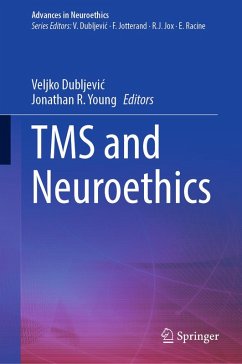This volume explores the ethical landscape surrounding TMS in both research and clinical settings. Prior neuroethics literature has largely focused on theoretical implications of neurostimulation technologies, including conceptual clarification (e.g., invasiveness) and normative questions regarding the alignment of these technologies with societal values. However, while some empirical work has captured perspectives from TMS patients, many key voices-such as those of family members, clinicians, and underrepresented communities-have remained absent from scholarly discussions.
Spanning historical reflection, theoretical debate, empirical analysis, and clinical insight, this collection features contributions from scholars and practitioners working at the intersection of neuroethics, neuroscience, psychiatry, and biomedical engineering. Part I of the volume offers historical and theoretical reflections, including the origins and growth of TMS research, racial disparities in access and participation, caregiver perspectives, and emerging issues related to cognitive enhancement, non-clinical use, and applications in social neuroscience and creativity. Part II turns to new directions and ethical issues in clinical TMS research, addressing treatment subgrouping, adolescent and geriatric use, mood and substance use disorders, suicidality, and the evolving regulatory landscape.
Together, these chapters provide an interdisciplinary examination of the ethical, clinical, and societal dimensions of TMS. Whether as an introduction to the neuroethics of brain stimulation or as a resource for neuroscientists, clinicians, engineers, and ethicists, this volume aims to foster greater understanding and dialogue around the responsible development and application of TMS.
Dieser Download kann aus rechtlichen Gründen nur mit Rechnungsadresse in A, B, BG, CY, CZ, D, DK, EW, E, FIN, F, GR, HR, H, IRL, I, LT, L, LR, M, NL, PL, P, R, S, SLO, SK ausgeliefert werden.









